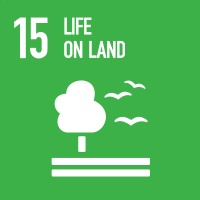Studying at the University of Verona
Here you can find information on the organisational aspects of the Programme, lecture timetables, learning activities and useful contact details for your time at the University, from enrolment to graduation.
Study Plan
This information is intended exclusively for students already enrolled in this course.If you are a new student interested in enrolling, you can find information about the course of study on the course page:
Laurea magistrale in Biotecnologie agro-alimentari - Enrollment from 2025/2026The Study Plan includes all modules, teaching and learning activities that each student will need to undertake during their time at the University.
Please select your Study Plan based on your enrollment year.
1° Year
| Modules | Credits | TAF | SSD |
|---|
2 modules among the following2° Year activated in the A.Y. 2023/2024
| Modules | Credits | TAF | SSD |
|---|
3 modules among the following| Modules | Credits | TAF | SSD |
|---|
2 modules among the following| Modules | Credits | TAF | SSD |
|---|
3 modules among the following| Modules | Credits | TAF | SSD |
|---|
Legend | Type of training activity (TTA)
TAF (Type of Educational Activity) All courses and activities are classified into different types of educational activities, indicated by a letter.
Biotechnology of fruit crops (2023/2024)
Teaching code
4S008251
Academic staff
Coordinator
Credits
6
Language
Italian
Scientific Disciplinary Sector (SSD)
AGR/03 - ARBORICULTURE AND FRUITCULTURE
Period
Semester 1 dal Oct 2, 2023 al Jan 26, 2024.
Courses Single
Authorized with reserve
Learning objectives
The course aims to provide students with the knowledge of technological, physiological and molecular aspects concerning the production of fruits of food interest. The course illustrates the molecular mechanisms that regulate the flower/fruit transition and the strategies for the improvement of fruit set and seedless fruit production as well as the physiology and molecular control of ripening with particular regard to the aspects that contribute to the final quality of the fruit. Examples of successful biotechnological approaches used to modify specific characteristics of the fruit and their impact on production, quality and post-harvest phases will be provided.
Prerequisites and basic notions
Knowledge of plant biology and physiology, biochemistry, molecular biology are required.
Program
• The transition from vegetative to reproductive development. Photosynthate partitioning during reproductive development. The regulation of flowering: endogenous and exogenous factors. Photoperiodism. The molecular basis of flower development.
• Formation of gametes, pollination, ovule fertilization, fruit initiation. The parthenocarpic fruit development. Hormonal control of fruit set. Biotechnological approaches for fruit set improvement and production of seedless fruits.
• Fruit development: from herbaceous growth to maturation phase. Processes, metabolisms and molecular events characterizing the maturation process in fleshy fruits. The hormonal control of ripening: physiology of climacteric and non-climacteric fruits. The interaction with the growing environment and the development of quality and productivity traits. Managing the fruit quality during the post-harvest phase: technological, physiological and molecular aspects of fruit storage and shelf-life.
• Mutants and selection of quality traits in fruit crop species. Biotechnological approaches for improving fruit traits: examples and case studies.
Bibliography
Didactic methods
Frontal lessons. In case of limitations due to COVID, upon presentation of the relative request on the appropriate form, supports such as video recordings or additional teaching / bibliographic material will be provided.
Learning assessment procedures
For both attending and non-attending students, the oral examination will concern the topics presented during the lessons.
Evaluation criteria
The exam will ascertain the students’ ability to understand the physiological and molecular basis of fruit development and evaluate biotechnological applications aimed at improving fruit quality and production.
Criteria for the composition of the final grade
The final grade will be the result of the learning test and will be formulated by mutual agreement between the course teachers.
Exam language
Italiano



